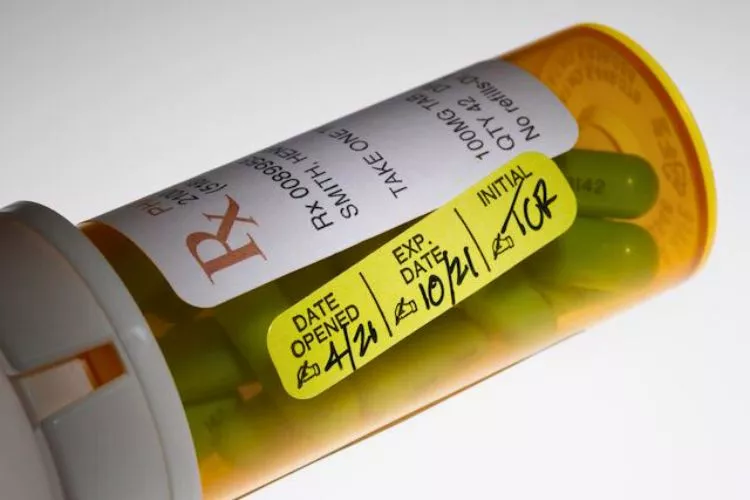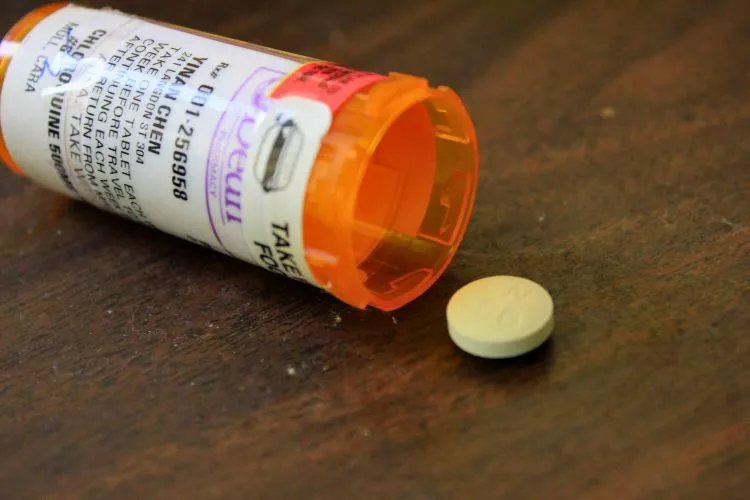Medications play a crucial role in maintaining our health and well-being. One aspect that often raises questions is the accuracy of medication expiration dates.
We rely on these dates to determine the safety and efficacy of our medications. But, are medication expiration dates accurate?
Well, in this article, we will explore the topic of medication expiration dates, dive into the factors affecting their accuracy, debunk common myths, provide tips on extending shelf life, and answer frequently asked questions.

Are medication expiration dates accurate?
Expiration dates on medications are an essential aspect of medication safety. They indicate the date until which the drug manufacturer guarantees the medicine’s full potency and effectiveness when stored properly.
While it may seem straightforward, these dates are determined through a complex process that involves considering various factors.
Factors Affecting Medication Shelf Life
Several factors can significantly impact the shelf life of medications. Environmental factors such as temperature, humidity, and light play a crucial role in the stability of drugs.
Exposure to high temperatures, excessive moisture, or direct sunlight can accelerate the degradation process, reducing the effectiveness of the medication. Proper storage conditions, including appropriate handling and packaging, are also vital for preserving medication quality.
Evaluating Medication Expiration Dates
Regulatory bodies, including the FDA (Food and Drug Administration), MHRA (Medicines and Healthcare products Regulatory Agency), and EMA (European Medicines Agency), provide guidelines for determining expiration dates based on stability testing.
Stability studies involve evaluating the chemical composition and stability of the active ingredients over time. This process helps determine how long a medication retains its specific potency and ensures it remains safe for use.
Debunking Common Myths about Medication Expiration Dates

Myth 1: Medications are dangerous after the expiration date
Expired medications are often perceived as potentially harmful. However, in most cases, their expiration dates indicate a decreased potency rather than harmfulness.
The chemicals in medications may break down and lose their effectiveness over time, but this does not automatically make them dangerous. Nevertheless, there can be exceptions, especially with certain antibiotics, where using expired medications can pose risks.
Myth 2: Expired medications always lose effectiveness
Contrary to popular belief, not all expired medications lose their effectiveness completely. Studies have shown that many medications maintain their potency beyond their expiration dates.
While some drugs may experience a gradual decline in effectiveness, others may retain their efficacy for a prolonged period. However, it is important to note that the potency and effectiveness of expired medications can vary depending on various factors, including storage conditions and the specific medication in question.
Extending Shelf Life of Medications

Proper Medication Storage
To maximize the shelf life of medications, proper storage is crucial. It is recommended to store medications in a cool, dry place away from direct sunlight. Bathrooms and kitchens, which are prone to temperature and humidity fluctuations, are generally not ideal storage locations.
Instead, consider storing medications in a bedroom or living area where the environment is more stable. Additionally, it is important to keep medications in their original packaging to protect them from exposure to environmental factors.
Medication beyond Expiration: When to Use, When to Discard
Understanding when to use or discard expired medications is important for medication safety. Generally, over-the-counter drugs like pain relievers or creams can still be used beyond their expiration dates with a reasonable level of confidence in their effectiveness.
However, it is advisable to exercise caution and evaluate their appearance and odor before using them. On the other hand, for life-saving medications, injectables, or drugs where strict adherence to expiration dates is critical, it is recommended to follow the guidelines and not use them beyond their expiration.
Frequently Asked Questions (FAQs)
Can expired medications be harmful?
Expired medications are generally not harmful, but their potency may have decreased. It is important to exercise caution, evaluate their appearance, and consult a healthcare professional when in doubt.
How can I determine if a medication is still safe to use after the expiration date?
Inspecting the medication visually for changes in color, texture, or odor can provide some clues about its condition. However, it is always best to consult a healthcare professional for guidance.
Are there any risks associated with using expired over-the-counter medications?
While the risks associated with using expired over-the-counter medications are generally low, it is important to assess their appearance and odor before use. If in doubt, it is advisable to replace them.
Should I pay attention to the expiration date of vitamins and supplements?
Yes, it is recommended to pay attention to the expiration date of vitamins and supplements. While they may retain their potency beyond the expiration date, it is advisable to use them within the specified timeframe for optimal efficacy.
Can medications that have been improperly stored be used beyond their expiration date?
Medications that have been improperly stored, exposed to extreme temperatures, or light may deteriorate faster. It is important to exercise caution and consult a healthcare professional when considering the use of such medications beyond their expiration dates.
Conclusion:
Medication expiration dates serve as a critical guide for maintaining medication safety. While they are generally accurate, it is important to understand the factors that can affect their accuracy.
By following proper storage practices and evaluating medications for any signs of degradation, we can maximize their shelf life.
If uncertain, always consult a healthcare professional for guidance. Responsible medication management is crucial for ensuring optimal effectiveness and safety.


